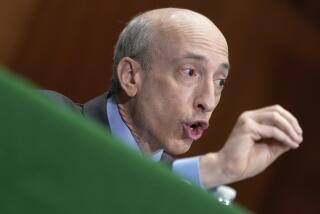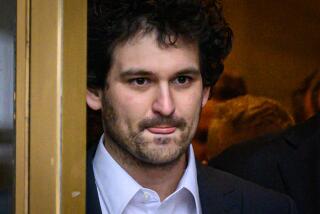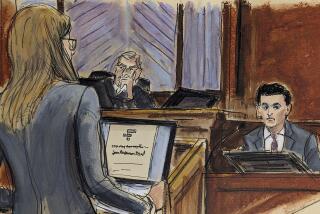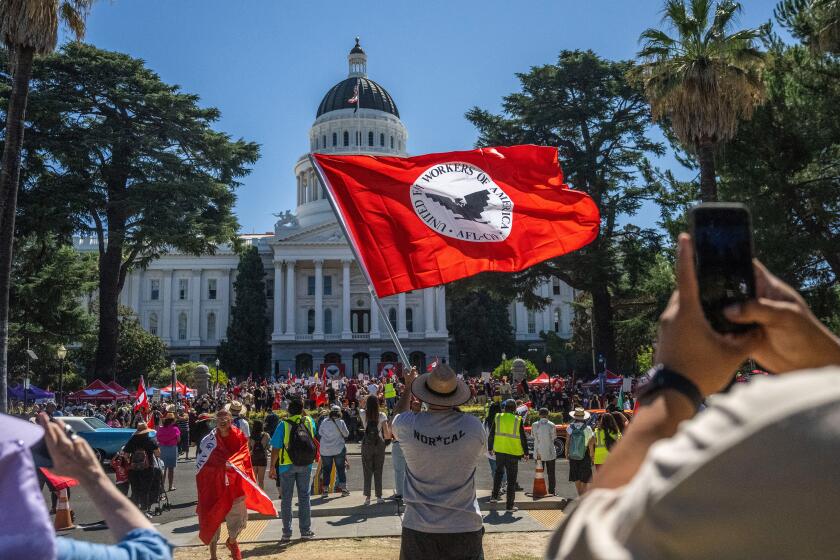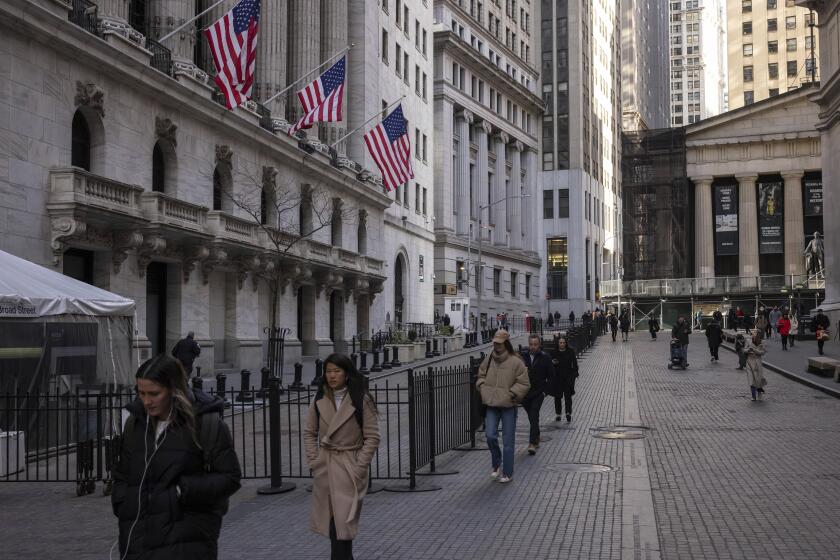SEC Sees No Error in Boesky Sales Just Before Settlement
The Securities and Exchange Commission acknowledged Friday that it was aware that stock speculator Ivan F. Boesky was selling stock just before the disclosure Nov. 14 of his $100-million insider trading settlement with the commission but said it had “no reason to believe” such sales violated securities laws.
The disclosure of the settlement provoked a three-day slump in the stock market, particularly among the merger stocks in which Boesky concentrated his holdings. That has led many people on Wall Street to charge that Boesky’s sales, which totaled about $440 million in the days immediately preceding the announcement, represented his final and most audacious act of insider trading.
The agency said it was aware that Boesky was moving to reduce the margin debt held by his major investment fund, a limited partnership, “through the sale of securities.”
The SEC said it feared that high margin debt could have forced the fund into “precipitous and uncontrollable liquidations of securities that would have had a very serious adverse effect on the market.” The pre-announcement sales, it said, averted that.
The agency also noted that Boesky was required to pay his $100-million penalty out of personal funds rather than those of any of his partnerships. Because the stock sales just before the settlement announcement were from one of his trading firms, the SEC argued that Boesky did not personally benefit from the trades. The line between his personal and corporate assets is not entirely clear, however.
One investor sued Boesky in New York on Friday, charging that Boesky’s trades just before the announcement of the SEC settlement cost him and other shareholders money.
The investor, Keith Garber, claims that he bought stock in Gillette just hours before the Boesky announcement and that its value has since declined sharply because of Boesky’s insider trading activities. Gillette, which closed at $67.75 on the day of the announcement, ended at $56.625 on Friday.
Like Gillette, the stock price of most takeover stocks nose-dived after the Boesky announcement. Gillette is a takeover target of Revlon Chairman Ronald O. Perelman.
In other developments related to the Boesky case on Friday:
- The House Banking Committee will conduct hearings into the role that banks and federal regulators have played in merger activities, panel Chairman Fernand J. St Germain (D-R.I.) said. The House panel thus will join the Senate Banking Committee and other congressional units in probing aspects of Boesky’s insider trading.
St Germain told officials of the Federal Reserve Board, the comptroller of the currency, the Federal Deposit Insurance Corp. and the Federal Home Loan Bank Board that he wanted to “explore what steps your agency has taken to provide safeguards against involvement of institutions under its jurisdiction in high-risk securities and speculative takeovers and how federal insurance funds are being insulated from these risks.” No date was set for the congressional hearings.
- The London Stock Exchange ordered its members to report any dealings with Boesky to the exchange’s surveillance division, formalizing an earlier decision by the exchange’s Ruling Council.
The exchange listed several concerns as being managed or controlled by Boesky, including Seemala Partners Ltd. Partnership, Ivan F. Boesky & Co. Ltd. Partnership, Marabill Partners Ltd. Partnership, Cambrian & General Securities PLC, Farnsworth & Hastings Ltd., Northview Corp. and IFB Managing Partnership.
Directors of Cambrian, which was set up by Boesky for tax reasons and chaired by him, met to appoint a new chairman on Friday. Cambrian, which invested mostly in North American securities, announced Monday that Boesky had resigned and that trading in its shares was suspended.
The firm’s offices would not give any information about the outcome.
- A New Jersey attorney sued Boesky in Manhattan, claiming that Boesky’s illegal insider trading activities artificially inflated the value of Boesky’s Northview Corp., a chain of inns. The attorney, David Grobow, who owns Northview stock, contended that since two-thirds of the firm’s 1985 profits were allegedly from illegal arbitrage trades, Northview’s 1986 profits can be expected to be sharply lower.
Grobow accuses Boesky and his IFB Management Corp. of violating federal securities laws and federal racketeering laws and seeks for himself and other Northview shareholders $50 million in punitive damages plus treble the unspecified sum that he says represents the difference between what he paid for his Northview stock and what it was actually worth.
